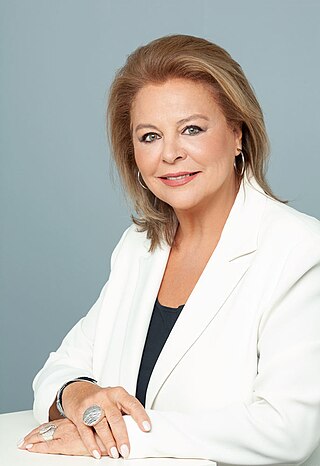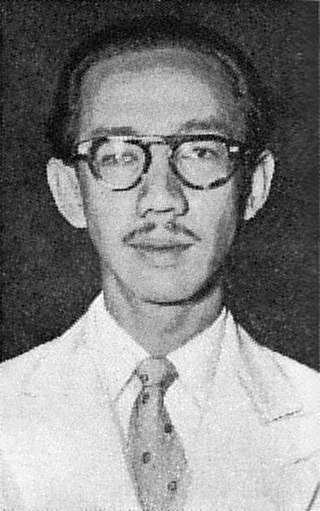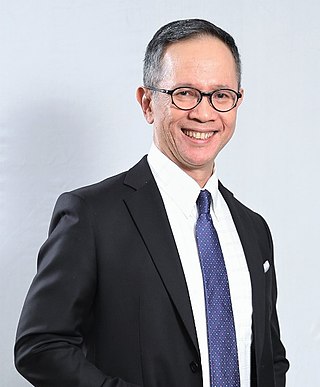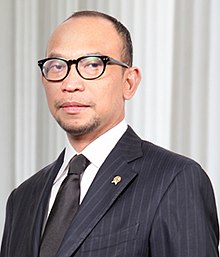The Berkeley Mafia was the term given to a group of University of California-trained economists in Indonesia who were given technocratic positions under the Suharto dictatorship during the late 1960s. They were appointed in the early stages of the New Order administration. Their work focused on promoting free-market capitalism in Indonesia and reversing many of the progressive economic reforms that had been introduced by the Sukarno government. The economic system in place under the New Order regime was termed crony capitalism due to the vast corruption within the country throughout this period. The Berkeley Mafia,like the Suharto dictatorship itself,aligned with the United States during the Cold War.

Guided Democracy was the political system in place in Indonesia from 1959 until the New Order began in 1966. It was the brainchild of President Sukarno,and was an attempt to bring about political stability. Sukarno believed that the parliamentarian system implemented during the liberal democracy period in Indonesia was ineffective due to its divisive political situation at that time. Instead,he sought a system based on the traditional village system of discussion and consensus,which occurred under the guidance of village elders. With the declaration of martial law and the introduction of this system,Indonesia returned to the presidential system and Sukarno became the head of government again.

Mahmoud Mohieldin, is an economist with more than 30 years of experience in international finance and development. He is the UN Climate Change High-Level Champion for Egypt. He is an Executive Director at the International Monetary Fund. He has been the United Nations Special Envoy on Financing the 2030 Sustainable Development Agenda since February 2020. He was the Minister of Investment of Egypt from 2004-2010,and most recently,served as the World Bank Group Senior Vice President for the 2030 Development Agenda,United Nations Relations and Partnerships. His roles at the World Bank also included Managing Director,responsible for Human Development,Sustainable Development,Poverty Reduction and Economic Management,Finance and Private Sector Development,and the World Bank Institute;World Bank President's Special Envoy on the Millennium Development Goals (MDGs),the Post-2015 Development Agenda,and Financing for Development;and Corporate Secretary and Executive Secretary to the Development Committee of the World Bank Group's Board of Governors. Dr Mohieldin also served on several Boards of Directors in the Central Bank of Egypt and the corporate sector. He was a member of the Commission on Growth and Development and was selected for the Young Global Leader of the World Economic Forum in 2005. His professional experience extends into the academic arena as a Professor of Economics and Finance at the Faculty of Economics and Political Science,Cairo University and as a Visiting Professor at several renowned Universities in Egypt,Korea,the UAE,the UK and the USA. He is a member of the International Advisory Board of Durham University Business School. He also holds leading positions in national,regional and international research centres and associations. He has authored numerous publications and articles in leading journals in the fields of economics,finance and development.

Nasser Saidi is a Lebanese politician and economist who served as the minister of economy and industry and the Vice Governor for the Lebanese central banks for several terms in the last decade of the 20th century.

The Development Reform Cabinet was the Indonesian cabinet which served under President B. J. Habibie during his term as president from 23 May 1998 to 20 October 1999.

Sjahrir was a prominent Indonesian political economist. He was officially appointed by President of the Republic of Indonesia,Susilo Bambang Yudhoyono as Economic Adviser in the Council of Presidential Advisers on 11 April 2007. As a student activist,he was once sentenced to jail during the Malari demonstration in 1974.

Emil Salim is an Indonesian economist and former politician. Born of Minangkabau parents,both from the village of Koto Gadang in West Sumatra. His uncle is Agus Salim,one of the founding fathers of the Republic of Indonesia and Minister of Foreign Affairs in the early 1950s.

Mohammad Sadli was a leading Indonesian policymaker and economist.

Sjafruddin Prawiranegara was an Indonesian statesman and economist. He served in various roles during his career,including as head of government in the Emergency Government of the Republic of Indonesia,as Minister of Finance in several cabinets,and as the first Governor of Bank Indonesia. Sjafruddin later became the prime minister of the Revolutionary Government of the Republic of Indonesia,a shadow government set up in opposition to the country's central government.

Beatrice Weder di Mauro is a Swiss economist who is currently Professor of economics at the Graduate Institute of International and Development Studies in Geneva,Research Professor and Distinguished Fellow-in-residence at the Emerging Markets Institute of INSEAD Singapore,and senior fellow at the Asian Bureau of Finance and Economic Research (ABFER). Since 2018,she also serves as President of the Centre for Economic Policy Research (CEPR).

Louka Katseli is a Greek economist and politician. Today,she is Professor Emeritus of the National and Kapodistrian University of Athens,Chair of the National Bank of Greece in Cyprus,CEO of Rightholders Cooperative EDEM,Vice President of the African Capacity Building Foundation (ACBF),member of the Independent Commission for Sustainable Equality,Progressive Alliance of Socialists and Democrats - S&D,and business consultant for enterprises and organizations in Greece and Europe.

Prof. Dr. Widjojo Nitisastro was an Indonesian economist,who was known as the main architect of the Indonesian economy during the New Order regime of President Suharto,serving as Minister for National Development (1971–1983) and Coordinating Minister for Economy,Finance and Industry (1973–1983). He was one of Indonesia's best-known and most respected economic policy-makers,both within Indonesia and overseas.

Sumitro Djojohadikusumo was an Indonesian statesman and one of the country's most influential economists. He held ministerial positions under Presidents Sukarno and Suharto intermittently between 1950 and 1978. During his career in government,Sumitro served as Minister of Industry and Trade,Minister of Finance,and the Minister of Research in five different cabinets. He was also the Dean of the Faculty of Economics at the University of Indonesia.
The Indonesia Project is a center of research and graduate training on the Indonesian economy at the Australian National University (ANU). It is located in the Arndt-Corden Department of Economics,Crawford School of Public Policy,part of the ANU College of Asia and the Pacific in Canberra. It was established in 1965 with an initial grant from the Ford Foundation.

YannisStournaras is a Greek economist who has been the Governor of the Bank of Greece since June 2014.
Thee Kian Wie was an Indonesian economist,academic and senior member of the Indonesian Institute of Sciences (LIPI). The Jakarta Post has called him "one of Indonesia’s most respected economists." He was also a long time lecturer at the University of Indonesia's Faculty of Economics.

Mahendra Siregar is the chief of the Financial Services Authority (OJK) of Indonesia. He previously served as Deputy Foreign Minister and was formerly the Indonesian Ambassador to the United States. On 25 October 2019 he was appointed as the deputy minister of foreign affairs supporting Indonesian foreign minister Retno Marsudi in the second Jokowi cabinet appointed two days earlier on 23 October. Earlier,he had been appointed as Ambassador to the US by president Joko Widodo in 2018. He had taken up his post in Washington DC in early 2019. Mahendra is a respected economist in Indonesia who has held various senior positions within the Indonesian bureaucracy.
The Bulletin of Indonesian Economic Studies (BIES) is a peer-reviewed academic journal produced at the Australian National University (ANU) in Canberra. It publishes articles and notes about the Indonesian economy. The BIES has been published three times each year since the first issue was produced in 1965.

Sunarjo Kolopaking,sometimes spelled as Sunario Kolopaking,was an Indonesian lawyer and sociologist. He was appointed as Minister of Finance in 1945,though rejecting the post,and he later became one of the first Indonesian professors at the University of Indonesia.

The Investment Coordinating Board is Non-Ministerial Government Body in Indonesia for formulation of government policies in the field of investment,both domestically and abroad.

















